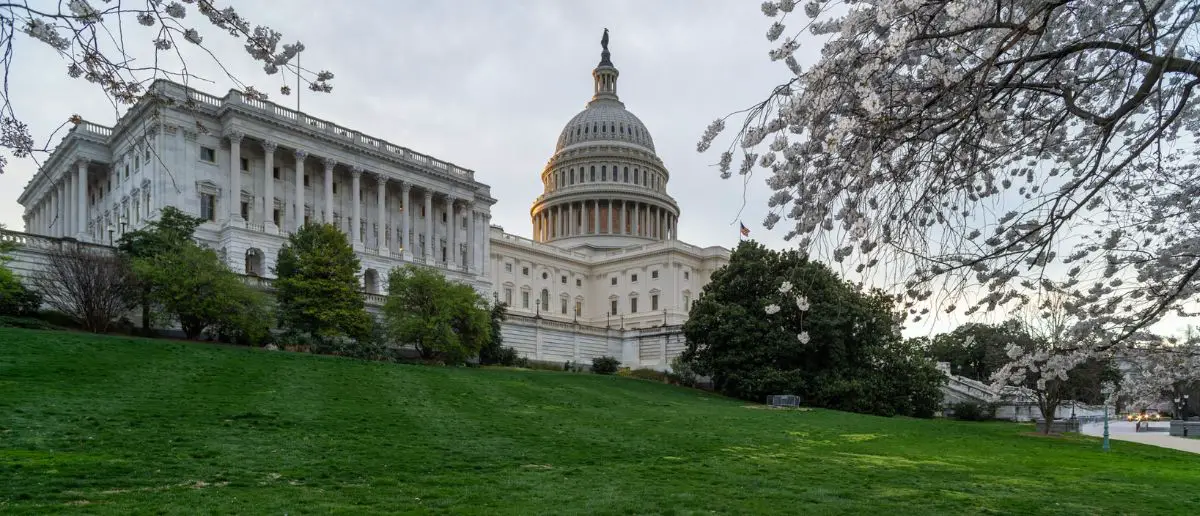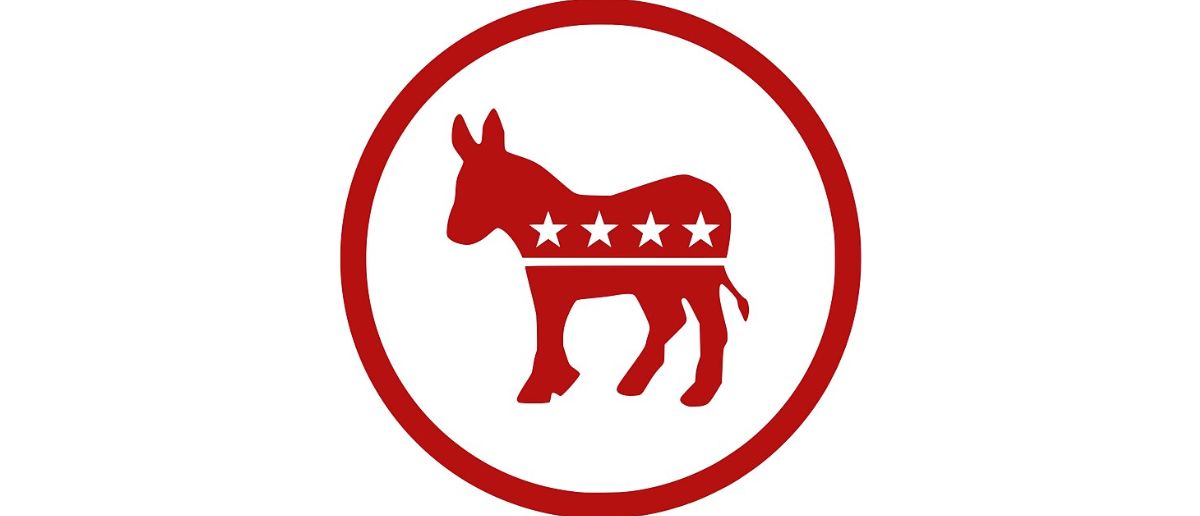
The D.C. political class is scrambling. They’re in the fight of their lives.
But Washington, D.C. had a total meltdown when this tense US House meeting went from bad to worse.
U.S. House Meeting On Medicaid Erupts, Democrats Stage Show
For years, the federal government has poured billions into Medicaid, a program spiraling under unchecked spending and lax oversight. House Republicans are now pushing for sweeping reforms, arguing that the program’s runaway costs threaten its long-term viability. In a heated Energy and Commerce Committee meeting this week, GOP lawmakers clashed with Democrats over proposed changes, insisting their plan stabilizes Medicaid without gutting coverage for the truly vulnerable.
The federal government’s Medicaid spending has skyrocketed, with the program consuming over $800 billion annually. This trajectory is unsustainable, especially as the national debt surpasses $36 trillion. Republicans argue that tightening eligibility and introducing accountability measures are essential to rein in costs while preserving care for mothers, children, the elderly, and the disabled. Their “big, beautiful bill” aims to deliver $880 billion in savings over a decade, with Medicaid reforms accounting for $625 billion, according to the Congressional Budget Office (CBO).
“This bill refocuses Medicaid on mothers, children, people with disabilities, and the elderly—not illegal immigrants and capable adults who choose not to work,” said Energy and Commerce Chairman Rep. Brett Guthrie, R-Ky. His statement came as Democrats accused the GOP of slashing coverage for millions. Guthrie dismissed these claims as a “fear campaign,” pointing to the bill’s text, which prioritizes core beneficiaries while targeting inefficiencies like duplicate enrollments and lax verification.
Democrats, led by Rep. Nanette Barragán, D-Calif., countered with dramatic displays during the committee markup. They showcased images of disabled individuals, claiming the reforms would strip them of coverage. Barragán warned that the bill “cuts at least $715 billion from healthcare, and we’re talking about 13.7 million people being kicked off of Medicaid.” Her figure leans heavily on CBO projections and the expiration of Affordable Care Act subsidies, inflating the perceived impact.
The CBO estimates that 10.3 million people could lose Medicaid coverage by 2034, with 7.6 million potentially uninsured. However, Republicans note that half of this figure stems from removing non-citizens or those failing to meet work requirements, which won’t apply until 2028. These requirements, targeting able-bodied adults, mandate 80 hours of monthly work, community service, or participation in educational programs. States can offer exemptions for short-term hardships, ensuring flexibility.
Critics argue that Democrats are exaggerating the reforms’ impact for political gain. Former House Speaker Newt Gingrich, observing the proceedings, accused Democrats of “acting with typical dishonesty.” He noted, “[t]hey are holding up pictures of people supposedly on Medicaid, suggesting they won’t get health care anymore if the Republican bill passes. Yet the pictures of kids and people with disabilities are NOT impacted by the bill.” The legislation explicitly exempts those under 19, pregnant women, and the disabled from work requirements.
The bill’s focus on accountability includes mandating states to verify recipient eligibility every six months starting in October 2027. This measure aims to curb fraud and ensure resources reach those who qualify. Rep. Buddy Carter, R-Ga., emphasized, “This is nothing more than fearmongering. It’s nothing more than misleading the public. What we are doing here is stabilizing this program.” He highlighted provisions to prevent illegal enrollments and multi-state registrations.
Democrats’ rhetoric echoes past political battles. In 2012, Rep. Alan Grayson, D-Fla., branded Republican healthcare plans as a “tax cut for billionaires.” An infamous ad even depicted a Paul Ryan lookalike pushing a wheelchair-bound senior off a cliff. Such tactics exploit fears about healthcare cuts, despite evidence that GOP reforms target waste, not vulnerable populations. The current bill, for instance, preserves coverage for those listed under Section 1902 of the Social Security Act, including the disabled.
Republicans face an uphill battle against this emotional narrative. Rep. Morgan Griffith, R-Va., clarified, “[w]ork requirements only apply to Medicaid expansion. Therefore, by definition, work requirements do not apply to the disabled. They’re exempt. They don’t have a work requirement.” Yet, Democrats’ vivid imagery and dire warnings resonate with a public wary of healthcare rollbacks.
Barragán doubled down, claiming, “The bottom line is people are going to lose benefits. People are going to be cut off of Medicaid, and that is not a good thing.” She dismissed GOP arguments about wealthy individuals exploiting Medicaid, noting, “Do you really think millionaires are getting income that’s less than $2,000 a month?”
The GOP’s push for “personal accountability” and “community engagement” targets Medicaid expansion under the Affordable Care Act, which extended coverage to those earning up to 138% of the poverty level. The proposed standards require 80 hours of monthly work or equivalent activities, a move Republicans say promotes self-reliance. Critics, however, argue these rules could disproportionately harm low-income workers with unstable jobs.
Medicaid’s growth has long outpaced inflation and population increases, driven by expanded eligibility and rising healthcare costs. The program now covers over 80 million Americans, nearly a quarter of the population. Without reform, analysts warn, Medicaid could strain federal and state budgets, crowding out other priorities like education and infrastructure.
Republicans argue that their plan strengthens Medicaid by focusing on its core mission. Carter told Barragán, “[t]he gentlelady knows perfectly well that that is not true. That it is not kicking 13.7 million people off of Medicaid. That is simply not true and the gentlelady knows that.” His frustration reflects the GOP’s challenge: convincing the public that fiscal discipline won’t abandon the needy.
The debate reveals a deeper divide over government’s role in healthcare. Democrats frame Medicaid as a lifeline that must remain untouched, while Republicans see it as a program ripe for optimization. The CBO’s savings projections suggest the GOP’s approach could ease budgetary pressures, but the optics of reduced enrollment fuel Democratic resistance.
Public perception often lags behind policy details. The 2012 election saw Mitt Romney vilified for healthcare proposals that, like today’s reforms, aimed to streamline costs. Democrats’ current strategy—leveraging images of the disabled and dire statistics—taps into this emotional vein, even if the bill’s exemptions undermine their claims.
As the Energy and Commerce Committee refines its portion of the bill, the fight over Medicaid’s future intensifies. Republicans must navigate a landscape where facts compete with fear, and fiscal responsibility clashes with compassion. The federal government’s decades-long spending spree on Medicaid has reached a breaking point, demanding reforms that balance sustainability with care for the vulnerable.
Stay tuned to the DC Daily Journal.





